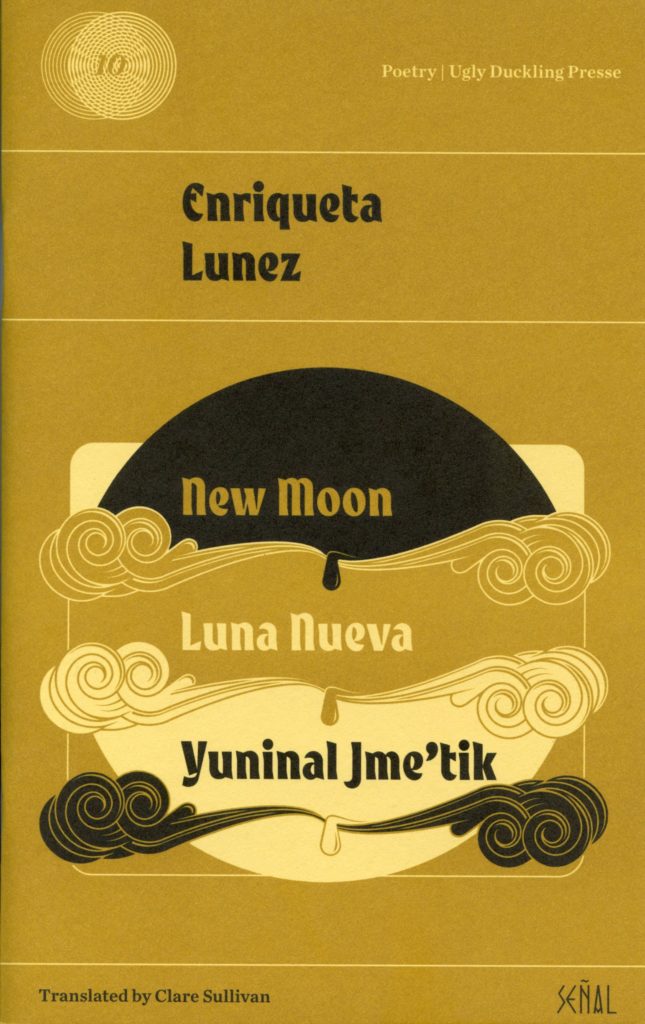The book itself is a spell, against what binds her to tradition, against what she loses by distancing herself.
Elisa Ramirez

New Moon
Enriqueta Lunez
Translated by Clare Sullivan
December 2019
Enriqueta Lunez’s New Moon carries the sensations and uncertainties of a dusk-filled landscape; traces of shadows obscuring full view of the horizon, of what’s ahead, of one’s own likeness. The voice of the poems tracks a series of moving targets—“haughty, I take aim,” she proclaims. Moving deeper into their path, into a fraught multiplicity of voices and faces, mortal concerns intersect with divine as souls and bodies are threatened, misplaced, or desperately sought. With “no time for lamenting,” Lunez probes the depths of womanhood, trauma, the earth, and of the soul’s place within these divides.
About the Author
Enriqueta Lunez was born in San Juan Chamula, Chiapas. Her road to poetry began in the state of Sinaloa. Far from the town of her birth, she began to write Tajimol Ch’ulelaletik / Juego de Nahuales (2008). As a grant recipient of the National Fund for Culture and the Arts (FONCA) she wrote Sk’eoj Jme’tik U / Cantos de Luna (2013). Her poems have been translated into Italian, German, English, French and Serbian.
Praise
The book itself is a spell, against what binds her to tradition, against what she loses by distancing herself. It begins with the new moon: invisible, dead, ready to be reborn, extinguished. And its first poem asks for death: as a youth, as an adult, as an old woman: just like the moon. Here she curses, dies, laments being a woman, longs to be like other faraway women she imagines, embraces a man, prostitutes herself or dries out beside the fire. Decomposition and decay, emulating outsiders, destroying all the ties that bind a woman to her fate – here or anywhere else.
Elisa Ramirez
In accepting the history in which they find themselves — however acculturated, however "inauthentic" — [the] women depicted by Lunez celebrate their freedoms from old prejudices without giving in to the trap of total Westernization.
Tyrone Williams, Full Stop
About the Translator
Clare Sullivan is an Associate Professor of Spanish at the University of Louisville, where she teaches poetry and translation. She received a 2010 NEA Translation Grant to work with Natalia Toledo’s poetry. The resulting work, The Black Flower and Other Zapotec Poems (Phoneme Media), was short-listed for the Best Translated Book Award. Her translation of Alejandro Tarrab’s Litane was published by Cardboard House Press in 2017, and her translation of Mario Montalbetti’s Language Is a Revolver for Two was published by UDP.
In the News
Links
Publication Details
ISBN: 978-1-946433-35-0
Chapbook
Staple-bound. 32 pp, 5.25 x 8.25 in
Publication Date: December 01 2019
Distribution: SPD
Series: Señal #10